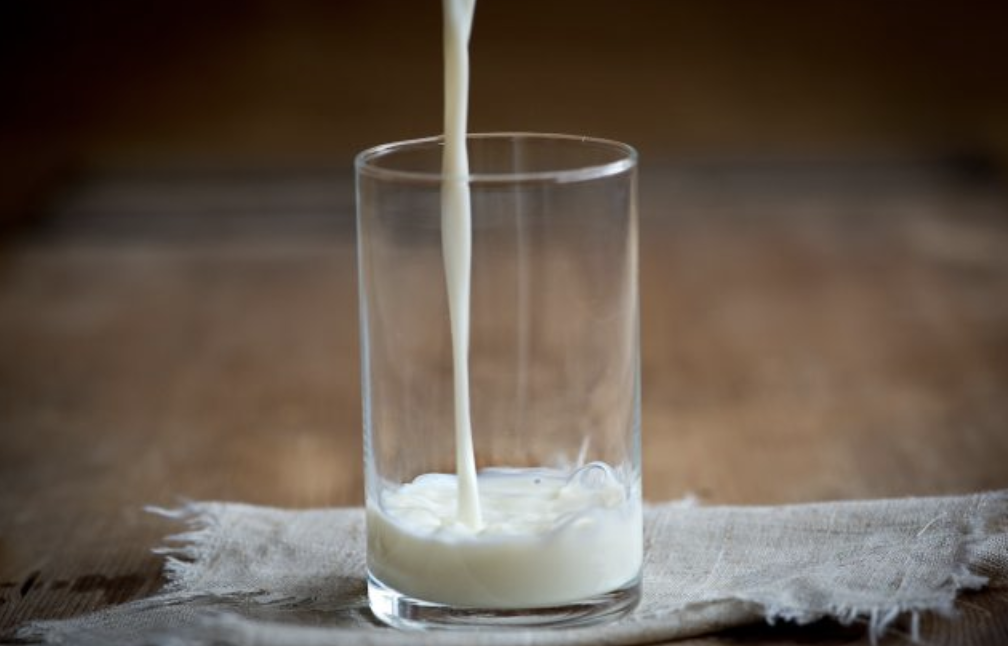Local hospitals ‘a good customer’ for dairy farmers
1st May 2020
Alexia Robinson, founder of Love British Food, is heading up an innovative matchmaking service to help hospitals source local milk for their patients, potentially creating a robust supply chain for

Alexia Robinson, founder of Love British Food, is heading up an innovative matchmaking service to help hospitals source local milk for their patients, potentially creating a robust supply chain for dairy farmers.
Love British Food, the leading national promoter of British food, is using its network of connections to link up local hospitals looking to source produce, with farmers in the area who are looking to supply. Dairy farmers who are struggling in the current climate are being encouraged to get in touch with the service.
Working with the chair of the Hospital Food Review, the organisation recently set out a pathway to help hospitals source more British food. It is expected to be published in the coming months.
A ‘quick win’ for hospitals
Prior to the coronavirus pandemic, there had been much media coverage about the benefits of alternative milk products, such as oat milk, which are often touted as being ‘better for the environment’ than cows’ milk. However, this is not so in hospitals and care homes, who value the nutritious qualities of cows’ milk, Alexia says.
“In hospital, you’re not being offered oat milk or almond milk, you’re being offered cows’ milk. Hospitals want the nutritional value of milk and patients in hospitals need this,” she says. “The same is true in care homes, where one of the biggest challenges is keeping weight on the elderly, and milk and dairy is seen as a key part of that.”
Hospitals order on average one pint of milk per patient per day, Alexia says, making the NHS one of the biggest purchasers of milk in the country. “I feel therefore that they offer one of the most certain and confident local supply chains to dairy farmers,” she explains.
The NHS supply chain food buying organisation has set hospitals in England a target of sourcing 20 per cent of their food from small-to-medium enterprises (SMEs), meaning hospitals will be looking at how to meet that target. Milk is an “easy, quick win”, Alexia says, as it is easier to source locally than some other products.
Securing the future
With the dairy sector facing serious challenges in the wake of Covid-19, which has forced many farmers to dump milk, while others have suffered price cuts or lack of payment, some farmers may be considering whether it is feasible to continue in business.
While this initiative with local hospitals may not necessarily offer a short term fix, it could put dairy farmers and their families in a position where they can start conversations with their local hospitals, with the potential to establish a new robust local supply chain – giving them the confidence to keep milking cows, to keeping farming.
One hospital the organisation works with is Nottingham University Hospital, which sources all of its meat in the East Midlands and all of its milk from the local dairy. Meanwhile one pig farmer is still in business thanks to a supplier agreement with a local hospital, which buys all of his pork.
However, there are caveats, Alexia says, emphasising that “it is not simple, it is not easy”. Dairy farmers will need to link up with local processors and this may involve co-operatives being put in place. For hospitals with a framework contract, they could change suppliers immediately, while for others it may take longer.
In the current pandemic situation, it is also worth noting that the demand for milk may not be at the same level as usual due to the cancellation of routine operations, but once these start back up again, hospitals will once again need to source 1pt of milk per patient per day.
Alexia says the “door is open” and the NHS is interested in having these discussions and putting arrangements in place.
While she is clear that there is “no magic wand” and supplying to local hospitals is not a solution to the current crisis many dairy farmers are facing, it offers an opportunity for a robust supply chain in the future, and potentially a beacon of hope to those considering whether or not to leave the business.
“For those dairy farmers that have seen the fragility of what happens when the pubs and restaurants close, hospitals are never going to be shut,” Alexia points out. “The NHS is a good customer.
“It’s about putting in place building blocks for the future. It’s about giving farmers a reason to continue to invest, to keep farming.”
Although there is no guarantee that every introduction will result in a successful business arrangement, Alexia believes there is “huge potential” and it is a “realistic” target to get hospitals sourcing 65 per cent of their food locally or domestically.
“I think we’ll see hospital food transform in the medium term,” she predicts, based on the NHS supply chain, the targets put in place, and the Hospital Food Review. “The opportunity to be part of that is very real for dairy farmers. The message is, get your place in the queue. Start those conversations. It might not be easy, but you’ll sow the seed.”
Dairy farmers looking to find out more about the matchmaking service can contact jane@lovebritishfood.co.uk


